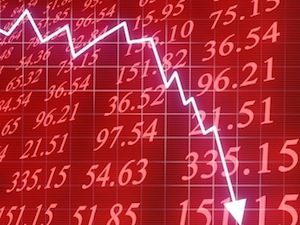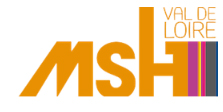Currency and finance
Scientific directors : Guillaume Sarah / Maxime Menuet
Research fields 2018-2023 2024-2028
Presentation :

In both Orléans and Tours, there is an exceptional concentration of currency and finance specialists – several historians work on Greek, Roman, Gallic and medieval currencies; several economists have specialized in financial history, the evolution of financial systems and intermediaries, and the regulation thereof…
The Currency and finance section of the Loire Valley MSH is a meeting point for researchers from teams in Tours and Orléans who are working on these themes :
- UMR 7323 – Centre d’Études Supérieures de la Renaissance (CESR, Advanced Renaissance Studies Centre)
- EA 6298 – Centre Tourangeau d’HIstoire et d’étude des Sources (CeTHiS, Tours Sources History and Study Centre)
- UMR 5060 – Institut de Recherche sur les ArchéoMATériaux (IRAMAT, Archeomaterials Research Institute)
- FRE 2014 – Orléans Economics Laboratory (LEO)
The objectives of this axis :
To encourage interdisciplinarity and exchanges between the different researchers. To this end, we have been organizing research workshops since 2013 to bring together laboratories doing research in different disciplines but with common or related themes. History provides information for study in finance and currency while conversely the economists’ focus subjects are enriched by the work of historians. The objective is therefore to combine views on the same themes and propose research using complementary tools or methods.
Since 2019, we have also been organizing conferences for the general public in connection with research news (project obtained, publication of a book, hosting of a foreign researcher…). The Currency and finance section has its own video collection on the MSH Val de Loire’s Canal-U channel, on which recordings of scientific events are available.
Questions which are the subject of debate :
Several directions have been taken to work on money and finance research topics. Work on money focuses on issues arising from the circulation of money and analyses the links between political authority and money (metallic composition, control of issuance, representations of money, monetary policy).
- Political authority and money: the metallic composition of currencies can be used to measure the degree of political authorities’ control over issuance.
- The circulation of money: monetary circulation phenomena also require surveys of monetary agents, workshop managers and money changers like those in medieval times and also of practices linked to money and its representations.
- Monetary metals: research into the arrival of American metals for which rare elements function as tracers means the proportion of these new metals in the money supply can be measured and therefore the influence of these metals on how the European economy functions can also be evaluated. This approach underpins many surveys of ancient and medieval gold, silver and copper alloys.
- Numismatic studies: physical analyses combined with historical sources mean researchers can adjust the classification of emissions, their location and date of manufacture. Real monetary policies can then be defined within a broader economic and political framework.
- Analysis of contemporary monetary policies and the behaviour of central banks
- How forms of money have evolved (from metallic money to dematerialized forms, virtual money, etc.)
Research into finance is an extension of the previous issue to some extent. Work in this area ranges from microeconomics (the theory of contracts and regulation) to monetary and financial macroeconomics through targeted market finance analysis.
- Market finance: research into historical finance, the international integration of financial markets, the behaviour of intermediaries based on incomplete information and the behaviour of those involved in delegated management, etc.
- Financial systems, institutions, growth and development: studying the origin of the differences between financial systems and their impact on economic growth.
- The governance and regulation of financial systems (financial market failures and developments asset price bubbles, crises, emergence of new intermediation actors) and regulatory and supervisory developments.
- Analysis of banking systems and the behaviour of non-bank agents (life insurance funds).
The work presented above is enriched by theoretical studies of the History of monetary and financial thought within the framework of PHILEO (philosophy, history and economic thought) seminars.

